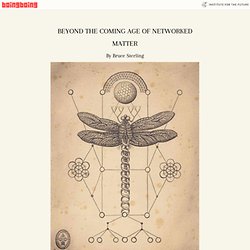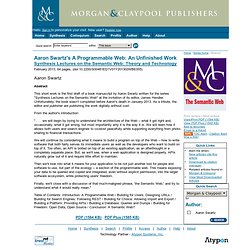

John McAfee développe un appareil capable de protéger vos données personnelles contre les gouvernements. Afin de lutter contre la surveillance de l’organisme de sécurité américain, la NSA, sur la population, le fondateur de la société d’anti-virus McAfee a expliqué vouloir créer un petit gadget de poche capable de vous rendre totalement invisible aux yeux des gouvernements.

Un moyen de garder son anonymat et de protéger sa vie privée. John McAfee, fondateur de la société de logiciels anti-virus qui porte son nom, a annoncé lors de la Convention Center qui se tenait à San Jose aux États-Unis, vouloir créer un dispositif permettant d’empêcher la NSA (Agence nationale de la sécurité) d’obtenir des informations vous concernant. Nommé ‘‘D-Central‘‘, ce gadget fonctionnera sur un réseau privé impossible à infiltrer et pourra être utiliser à l’aide d’un smartphone.
Grâce à lui « Il n’y aura aucun moyen (pour le gouvernement) de savoir qui vous êtes et où vous êtes » affirme son inventeur. Net. How the feds asked Microsoft to backdoor BitLocker, their full-disk encryption tool. Study shows just how fast censorship can occur in social media. Rice, UNM study examines real-time censorship on site with 100 million daily posts An analysis of censorship patterns on the Twitter-like Chinese social media service called Weibo gives the clearest picture yet of how the site’s operator, Sina Weibo, finds and deletes controversial posts in near real time, despite a daily volume of 100 million messages.

The study, which was conducted by an independent researcher and collaborators at Rice University and the University of New Mexico (UNM), is available online and undergoing peer review. “Other people have explored censorship on Weibo, but this work is focused on the speed at which censorship happens,” said lead researcher Dan Wallach, professor of computer science at Rice and co-author of a forthcoming study that was recently posted on the pre-print site arxiv.org. A team led by Wallach and UNM’s Jed Crandall worked with the study’s lead author, an independent researcher named Tao Zhu.
Bruce Sterling: "From Beyond the Coming Age of Networked Matter," a short story. By Bruce Sterling "Mutation Machine" by Daniel Martin Diaz Introduction In 2013 at Institute for the Future, the non-profit forecasting thinktank where I'm a researcher, we explored what we're calling the Coming Age of Networked Matter.

Over the next few decades, a confluence of breakthroughs in physics, engineering, biology, computation, and complexity science will give us new lenses to observe the wondrous interconnections surrounding us and within us. In the future we’re moving toward, we won’t only observe complex systems, we’ll also modify and even create them in vivo and with purpose. To help make this future tangible, we commissioned some of our favorite writers of speculative fiction -- Cory Doctorow, Rudy Rucker, Ramez Naam, Bruce Sterling, Madeline Ashby, and Warren Ellis -- to write short stories tied to our research theme. We are thrilled to premier these stories on Boing Boing. I wasn’t too chuffed about the weird changes I saw in my favorite start-up guy.
“Why?” All about.” Your Facebook friends may be evil bots. Credit: Palto/iStockphoto How safe is your online social network?

Not very, as it turns out. Your friends may not even be human, but rather bots siphoning off your data and influencing your decisions with convincing yet programmed points of view. A team of computer researchers at the Department of Electrical and Computer Engineering at the University of British Columbia has found that hordes of social bots could not only spell disaster for large online destinations like Facebook and Twitter but also threaten the very fabric of the Web and even have implications for our broader economy and society. [ The Web browser is your portal to the world -- as well as the conduit that lets in many security threats. Four UBC scientists designed a "social botnet" -- an army of automatic "friends. " Synthesis Lectures on the Semantic Web: Theory and Technology - 3(2):1 - Abstract. February 2013, 64 pages, (doi:10.2200/S00481ED1V01Y201302WBE005) Abstract This short work is the first draft of a book manuscript by Aaron Swartz written for the series "Synthesis Lectures on the Semantic Web" at the invitation of its editor, James Hendler.

Unfortunately, the book wasn't completed before Aaron's death in January 2013. As a tribute, the editor and publisher are publishing the work digitally without cost. From the author's introduction: " . . . we will begin by trying to understand the architecture of the Web -- what it got right and, occasionally, what it got wrong, but most importantly why it is the way it is. We will continue by considering what it means to build a program on top of the Web -- how to write software that both fairly serves its immediate users as well as the developers who want to build on top of it. Finally, we'll close with a discussion of that much-maligned phrase, 'the Semantic Web,' and try to understand what it would really mean.
"